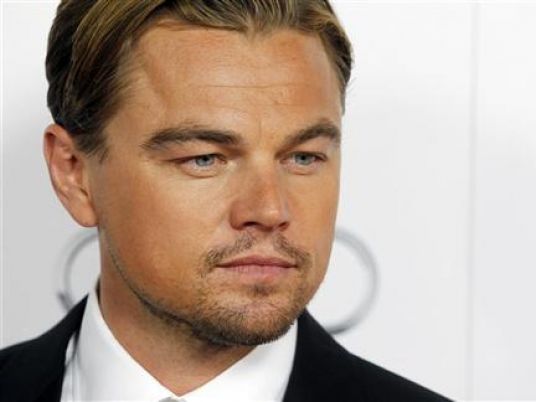That's the blunt statistic closing "The Ivory Game," Netflix's latest foray into original documentary. Directed by Richard Ladkani and Kief Davidson, and executive produced by Leonardo DiCaprio, the figure makes for a brutal full stop to their breakneck exposé of the global ivory trade.
It's also a statistic that puts the African elephant on course for extinction. By Ladkani and Davidson's calculation, 35,000 are being killed a year. In August, the Great Elephant Census revealed it had found just 352,271 animals in the countries it had surveyed.
Thriving on corruption, subterfuge and greed, the ivory trade is not just an African problem. Sprawling and nebulous, its complex web connects Zambian poachers and basement dealers in Hong Kong, Kenyan reserves and Vietnamese carving factories. Never far from the surface is the presence of organized crime.
Throughout the shoot the directors were in real and present danger — and some of their subjects still are. Many sequences were filmed deep undercover or while embedded in military taskforces. Not all their operations were successful.
On the eve of the documentary's release in 190 territories — with the glaring omission of China — Ladkani and Davidson look back on the experience, and ask what more can be done.
"It stays with you"
The documentary, framed like a Paul Greengrass thriller, zig-zags across the globe following conservationists, activists and government forces tracking the bloody paper trail of ivory. Punctuating the narrative — with disturbing frequency — are images of elephants, shorn of their tusks.
Ladkani and Davidson are experienced, award-winning filmmakers with footholds in Africa. However neither had ever been confronted with the sight of a dead, decaying elephant.
"We weren't prepared," says Ladkani. "You can't really be prepared. What actually throws you off, what everyone forgets to mention, is the smell. You approach an elephant, 100 meters away, and already you have this strong smell. It gets to you, the closer you get. It gets in your clothes. It stays with you for two weeks, you can't get rid of it."
A bull elephant killed by poachers on the border of Botswana and Namibia, it's face hacked off with an axe or machete to retrieve it's valuable ivory tusks.
It's often days before a taskforce finds an elephant carcass. The reserves they roam are vast, and airplane is the transport of choice for surveillance. By the time conservationists can get close, often an elephant will have had been mutilated by poachers and visited by scavengers. Sometimes poachers hack off the animal's face entirely.
"It's a horrific sight, and something that stays with you," says the director. "But what's more powerful and gets you more emotional is seeing the faces of the guys we were filming… for them it's like a lost child."
For Kenyan Craig Millar, head of security and field co-ordinator of the Big Life Foundation, it's a sight that's too familiar and yet clearly raw every time.
"Traders of ivory actually want the extinction of elephants," he explains at the site of a massacred family. "The less elephants there are, the more the price rises; the more the price rises, the more people want to kill them. And this is an ever ongoing circle."
Millar, along with Ian Craig, director of conservation at the Northern Rangeland Trust, Zambian Georgina Kamanga and Tanzanian Elisifa Ngowi (both intelligence chiefs), represent one front in the battle against the ivory trade. Hunting down poachers on reserves and tracking down elusive kingpins, it's conservation at the end of a gun barrel.
A continent away, espionage is the only way to halt the flow of ivory.
"We had to stay in the shadows"
Collaborating with undercover conservationist Andrea Crosta, Chinese journalist Hongxiang Huang and anonymous activist "Omega," the directors were able to reveal the destination of a large amount of African ivory: Chinese dealers, doctoring records and passing off illegal ivory as part of the country's (still) legal quota.
"The agreement that was made was that we don't slow them down," Davidson recalls. "We were to be flies on the wall and at no point do we expose them or put them in danger.
"That's a pretty big responsibility for filmmakers to have… These are people who are risking their lives, [so] we had to basically stay in the shadows."
While "Omega" chose to remain anonymous — "for all the right reasons," Davidson adds — Huang went public. It was a bold move, say the directing duo, but an important one.
"We were very lucky to find a Chinese hero who was actually taking the lead in combating wildlife crime and going against poachers and traffickers and getting them arrested," says Ladkani. "It should look very good for the Chinese, to see that there's Chinese people working to stop this."
However there will be difficulty showing the documentary to Chinese nationals beyond the diaspora. Netflix does not operate in the country, and therefore "The Ivory Game" will not be part of the national conversation.
"It needs to go to China," says Ladkani, who reveals the duo are exploring options on the festival circuit as a point of entry.
"Part of the problem is there's so many Chinese people who don't understand, who don't know," Davidson says, frustration etched on his face. "There's a lack of education where ivory comes from.
"Obviously they know ivory is coming from an elephant, but people that we've talked to think it's come from an elephant that was already dead, or it's a mammoth." Or, Ladkani adds, that it has simply "fallen off."
"The Ivory Game" is an antidote to such ignorance, and the directors are hoping for "a massive and immediate impact."
"We've always treated this film as an urgent film," says Davidson. "Every year [it took] to make is another 35,000 elephants that may be killed."
There are glimmers of hope offered in the documentary's final act. We see the 105 ton stockpile of Kenyan ivory destroyed in April this year, along with the news that Hong Kong will phase out ivory by 2021 — in part, says Davidson, as a result of evidence presented to authorities by Crosta and Huang.
But five years represents "another 150,000 [elephants]," says Ladkani. "That's almost half of all that's left."
And for what? Dentin, the same substance in our teeth. The decimation of the elephant population is an absurd and obscene crime, the film makes clear, in pursuit of an object that needs "shaming," in the words of Ian Craig.
Despite its scale, "The Ivory Game" shows that right now, the fate of Africa's elephants rests on the efforts of individuals and small embattled groups scattered across the globe. But more damning is the conclusion that if we stand by and they should fail, the shame will fall on all of us.
"The Ivory Game" is released on Netflix on November 4.



